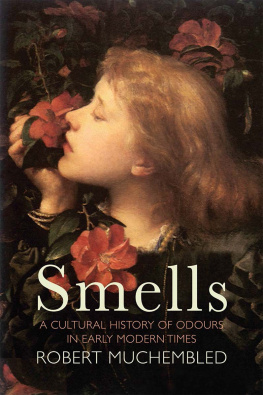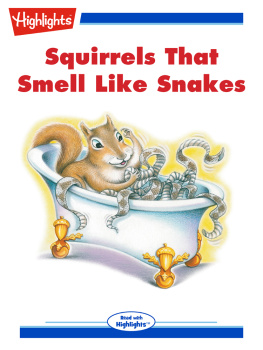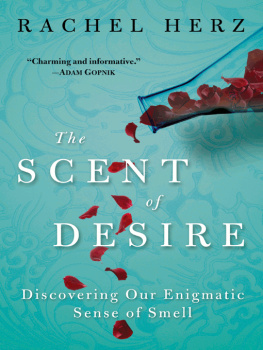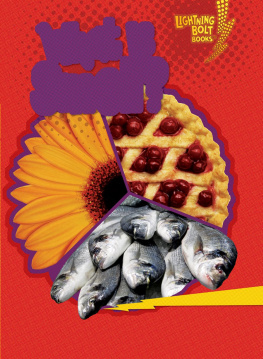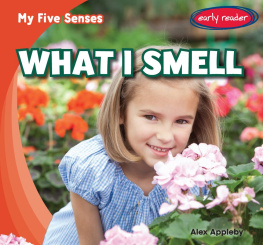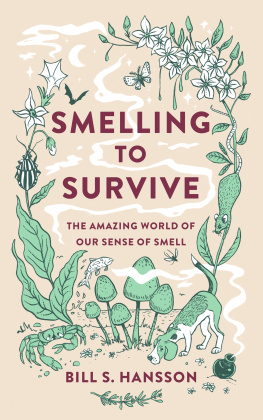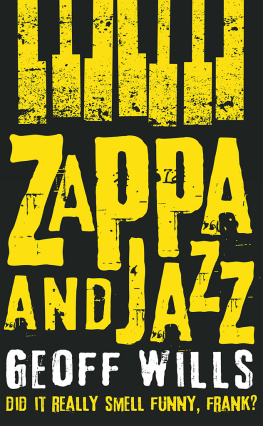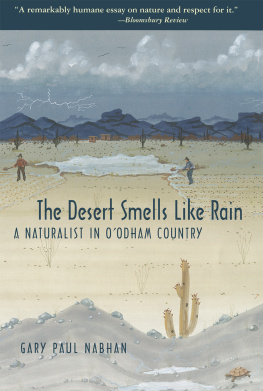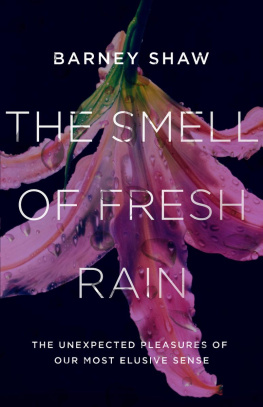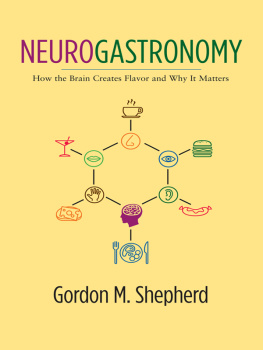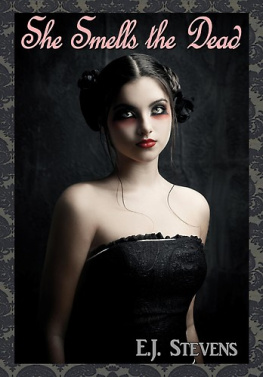First published in French as La civilisation des odeurs (XVIe dbut XIXe sicle) 2017, Socit ddition Les Belles Lettres, 95, Boulevard Raspail, 75006 Paris
This English edition Polity Press, 2020
Polity Press
65 Bridge Street
Cambridge CB2 1UR, UK
Polity Press
101 Station Landing
Suite 300
Medford, MA 02155, USA
All rights reserved. Except for the quotation of short passages for the purpose of criticism and review, no part of this publication may be reproduced, stored in a retrieval system or transmitted, in any form or by any means, electronic, mechanical, photocopying, recording or otherwise, without the prior permission of the publisher.
ISBN-13: 9781509536795
A catalogue record for this book is available from the British Library.
Library of Congress Cataloging-in-Publication Data
Names: Muchembled, Robert, 1944- author. | Pickford, Susan, translator.
Title: Smells : a cultural history of odours in early modern times / Robert Muchembled ; translated by Susan Pickford.
Other titles: Civilisation des odeurs (XVIe-dbut XIXe sicle). English
Description: Cambridge, UK ; Medford, MA : Polity, 2020. | Includes bibliographical references and index. | Summary: A rich cultural history of smells that sheds new light on an under-appreciated sense--Provided by publisher.
Identifiers: LCCN 2019045567 (print) | LCCN 2019045568 (ebook) | ISBN 9781509536771 (hardback) | ISBN 9781509536788 (paperback) | ISBN 9781509536795 (epub)
Subjects: LCSH: Odors--Social aspects--Europe--History. | Smell--Social aspects--Europe--History. | Civilization, Modern. | Europe--Civilization.
Classification: LCC GT2847 .M8313 2020 (print) | LCC GT2847 (ebook) | DDC 612.8/6094--dc23
LC record available at https://lccn.loc.gov/2019045567
LC ebook record available at https://lccn.loc.gov/2019045568
The publisher has used its best endeavours to ensure that the URLs for external websites referred to in this book are correct and active at the time of going to press. However, the publisher has no responsibility for the websites and can make no guarantee that a site will remain live or that the content is or will remain appropriate.
Every effort has been made to trace all copyright holders, but if any have been overlooked the publisher will be pleased to include any necessary credits in any subsequent reprint or edition.
For further information on Polity, visit our website: politybooks.com
Introduction
In The Civilizing Process , Norbert Elias put forward an overarching vision of the progress of Western civilization based on the slow domestication of affectivity, increasingly leading the subject to develop self-control.
When it was first published in 1939, Eliass work offered a valuable intellectual antidote to the looming threat of Nazism; however, its approach to sensory phenomena does not reflect the latest in scientific research. It takes as its main example the court of Louis XIV, seeing the restriction of bodily functions in public and the increasing disapproval of excessive or indecent reactions in the presence of others as part of a broad civilizing process. Elias argued that these new models of behaviour became ingrained in childhood among the upper classes, leading to increasing suppression of aggressive tendencies at an individual level that were then slowly adopted by other social groups.
This valuable basic framework can be used to underpin new directions in research. Smells, the focus of this book, were a key point in innovative conduct manuals such as Erasmuss De civilitate morum puerilium [ On civility in boys ], published in 1530 for a select readership. Recent scientific research has shown that smells are vital gateways for emotions and their recall. As the first chapter will demonstrate, smell is arguably the only one of our senses to be acquired from experience, rather than being innate. As it is binary in nature, it can easily be inflected by affective messages towards pleasure or, alternatively, fear and disgust. This opens the door to a sort of experimental history, drawing on the vast body of information left by people long since dead. This means trying to understand how their world worked, how they saw it and thought about it, rather than projecting our own presuppositions onto them. This is the path historical method must take to achieve a degree of objectivity, whatever claims may be made for other methodologies. Disgust at smells is a fundamental sensation in humans, but not one that is biologically programmed. It takes four or five years at least for European children, for instance, to construct disgust at their own excrement. Few people nowadays are willing to acknowledge this, preferring to believe that such disgust is as natural as it is universal; in fact, it is the result of several centuries of cultural pressure. Stubbornly maintained from generation to generation, this pressure has given rise to individual reactions of shame and disgust at anal excreta. The slightest suggestion of a whiff of excrement makes us literally nauseous. We can also feel the same uncontrollable repugnance at the mere sight or mention of it, even in a scatological joke; once the smell has become categorized as negative, all our senses seek to keep it at arms length and communicate this to our consciousness. This was by no means the case in the sixteenth and seventeenth centuries, with the exception of a tiny minority who stood apart not only from the masses, materially mired in stench, but also from the majority of intellectuals, including storytellers, who took pleasure in spreading a lively scatological culture.
While Smells: A Cultural History of Odours in Early Modern Times draws admiringly on Norbert Eliass pioneering work, it adopts a far less linear perspective. The significant shifts in our sense of smell from the Renaissance to the Napoleonic Empire cannot be framed in terms of inevitable human progress. Rather, they are approached here as first and foremost a reflection of the daily concerns of our ancestors. The aim is by no means to conjure up an image of the good old days. The stench in centuries past was dreadful and omnipresent, the air saturated with nauseating emissions and dangerous pollution, particularly in urban areas hemmed in by city walls. The air in towns and cities became even harder to breathe in the eighteenth century as the population swelled, reaching noxious new heights with the advent of industrialization, until mains drainage systems were installed from the late nineteenth century on (see ).
At the same period, medicine explained terrifying recurrent outbreaks of plague by Satans poisonous breath corrupting the air. Ambergris, musk and civet came to be seen as vital bulwarks against the Devils breath, a metaphor for sin, which was held to cause dreadful epidemics. Scents were worn like armour against the plague, and doctors explained that harmful forms of pestilence were dispelled by even worse fetid stenches. Plague was thereby correlated with terrible stenches of all sorts in countless scholarly treatises, while pleasant scents such as those emanating from the bodies of saints were thought to open the gates of paradise (see ).
The womens perfume sector is still dominated by fruity and floral scents. Contrary to some claims, the present day is by no means devoid of smells. Such claims merely reflect a striking shift in our attitudes to pain and mortality, now kept out of sight and out of smell. Western society has certainly not lost the use of a sense as vital as smell. Though science long paid our noses little attention, recent research has shown that they are in fact home to the sharpest of all our senses, capable of distinguishing between huge numbers of smells. This book sets out to explore this sudden return to favour, starting with an overview of the current state of scholarly research on this fascinating topic (see ).

